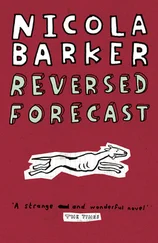Good Gracious. Dewi’s hands were suddenly shaking. He tried to relax them, forming tight fists one moment, flexing them the next. He glanced down, anxiously. As his head dipped he was momentarily blinded by a gush of light. He flinched. He blinked. He straightened up, immediately. His eyes scanned the road again. To the left of him. To the right.
Could it really have been Wesley? He frowned. But seriously… Could it really? Back in Canvey again? The actual Wesley? Here? Large as life? In the flesh?
But how was that possible? More to the point, how would he dare? And what on earth might his reasons be? (To gloat? To crow? To strut? To swagger?)
Wesley back? No. Never. The more he thought about it the more… the more crazy it seemed, the more… well, ridiculous. Ludicrous. Inconceivable.
Dewi’s frantic eyes briefly desisted from their anxious scanning of the roadway, relaxed, refocussed, then suddenly — quite unintentionally — caught an oddly disquieting glimpse of their own violent expression in the window’s clear reflection. He flinched, then looked sideways, almost shiftily.
This was not like him.
This is not… This is not like me, he told himself, This is… this is…
Inconceivable? But was it? Was it really? His right shoulder jerked upwards, in a tiny spasm, towards his dust-slicked ear-lobe. Yes. Yes. Absolutely. It had to be. Because over the past two years Wesley — or the idea, the concept, the very notion of Wesley — had somehow acquired a marvellous, a fabulous, an almost… yes, an almost mythological significance for him.
The way he saw it, Wesley was an absolute one-off. He was the genuine article. He was out there, on a limb (teetering, maybe, but clinging on, determinedly). He was unique. He was unparalleled. He was completely and totally and utterly unprecedented.
Even so, this phenomenal — no — this extraordinary singularity as Dewi (perhaps somewhat naively) perceived it, was patently not apprehended by him as any kind of virtue. Quite the contrary. For when Dewi actually imagined Wesley — when he conjured up an image of him, inside his mind — Wesley was not configurated, not defined, not delineated quite as your average, ordinary, every-day mortal should be.
Within the deliciously wholesome confines of Dewi’s imaginings, Wesley took on the form of something infinitely less, and yet — quite paradoxically — something immeasurably more than your average, commonplace, rough-hewn homosapien. Because for Dewi, Wesley was actually an absolute, undisputed, honest-to-goodness monster. A monster in all the traditional senses: small-brained, big-jawed, heaving, sweating, baying, howling, gesticulating, clawing, gnashing…
The vilest, the cruellest, the most unapologetically lawless, coarse, despicable and licentious creature. A horned demon. Fork-tailed. Fanged. Cloven.
But that wasn’t… that couldn’t… even that didn’t encompass… it didn’t…
Because when Dewi tried to visualise Wesley, the initial image he generated rarely remained constant. It switched. It varied. It altered. It disintegrated. It morphed (morphed? Was that the proper, modern word for it?).
Inside Dewi’s agitated imaginings, Wesley was not merely bestial, he was more… so much more complicated than that. More terrible. And infinitely less predictable. He saw many forms. He was a Shape-Shifter. He was a Changeling. He was a Centaur, or possibly a Gorgon, or maybe even a Satyr. Yes…
Yes. That was it. A satyr. With hooves. With muscular thighs. Curling hair. A pan-pipe…
A pan-pipe?
No… No. The image was changing. It was disintegrating again. It was vacillating, reconfigurating…
Either way, Wesley was something decidedly foul but strangely intangible, something thoroughly ancient but heinously ungodly. He was the anti-everything. He was the unthinkable.
For Dewi — and he was hardly a man alone in this particular respect — life held many uncertainties (could he afford this month’s rent? Did his saw need greasing? Was he allergic to walnuts? Were his plug-holes blocked up again?), yet among all of these manifold uncertainties there remained one thing — and one thing only — of which he was profoundly certain. No — tell a lie — there were two things, but the first of these was simply a given: that he loved Katherine Turpin; that he loved her truly, unselfishly, and to distraction — that she was a Queen to him.
And the second thing? It was related to the former, inextricably. The second thing Dewi knew for certain was that even if — by a very large stretch of the imagination — he was able to grasp the notion of Wesley’s actual physical being — his mortality — he was still totally incapable of comprehending the idea of Wesley as a moral entity — incapable, in effect, of believing in Wesley’s humanity.
Because Wesley was not like other men. He lacked something. He missed an essential quality (gentleness? benevolence? decency?). He was not a proper person. He was a pitiful creature. He was lost. He was damned. He was hollow. He was empty.
To all intents and purposes, Wesley did not really exist. Not morally-speaking, anyway. He was a vacuum. He was struck-out. Deleted. He was nothing.
Dewi shoved a thick strand of hair from his eyes, noticing, idly (as he pulled his hand away), how the film of dust on his fist had been severed by a thick slick of tomato juice; his four knuckles split into two. Neatly riven. Dissected. He paused for a moment, breathing deeply.
And yet… And yet if it really had been Wesley he’d seen — all things taken into account and everything — if it really had been him, then what could he seriously expect to gain from this strange and unexpected Second Coming? What more could he take from them — realistically? Hadn’t he taken enough the first time around? Hadn’t he stripped them bare? Hadn’t he humbled and humiliated them then sufficiently?
What more could he take, damn him?
Dewi placed the remainder of his sandwich down onto the window ledge. His stomach was churning. And time was passing. He shifted his weight. He wiped his mouth. He glanced at his watch. Twelve twen… Twelve twenty-one?
What?
Two whole minutes later than she ever was, normally?
Sweet Katherine
Not that he kept tabs or anything.
Twelve… twelve… twelve twenty-two already?
By twelve twenty-three Dewi had already run several times through every conceivable option:
A delay at work
A random conversation
A breakdown
An accident
Or was it something more insidious? Something to do with the Estate Agent? With Ted? Sharp-suited, sandy-coloured Ted. Or with the kid in her garden? Or the boy-girl? Or the ruined old fellow with the little dog? Or the notebook-clutching fool in the plastic hat? The Followers. The Behindlings.
He clenched his teeth in frustration. He’d guessed they’d be back. He’d predicted it. After the book initially came out — almost two years ago now — they’d come then (not in hordes, not in their hundreds, but in dribs and in drabs, in gangs, in clutches. Just enough of them, basically, to bug, to chafe, to niggle him).
And they’d continued to come. Predictable as bad weather. Twice as persistent. Men, mostly. Sad cases. Trouble-makers. Wolves in sheep’s clothing. Saintly sinners yearning to share something (experience? Pity? Semen?).
And the locals joked about it, to start off with. Then the neighbours started complaining. But Katherine? She didn’t seem to notice, or if she did (and she must’ve) then she never spoke out about it, never let on to anyone, just pretended she didn’t care, just lived her life, same as ever, quietly, firmly, impassively.
Читать дальше
Конец ознакомительного отрывка
Купить книгу












